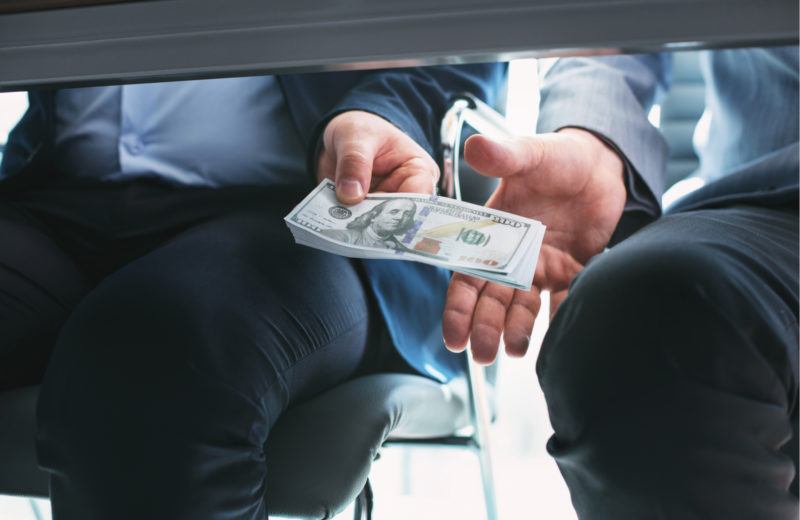For the Love of Cronies

From Boeing to the Kennedy Center to state and local governments, the massive $2.3 trillion stimulus package to deal with the economic fallout of the coronavirus pandemic is also spreading – rather like a virus – the love to the usual special interests. Politicians will be politicians, you may say. But unfortunately, we will have to live with the distortions and the debt for decades to come.
Here are a few examples, which you can find in the bill here:
At a time where everyone is relying less and less on the government’s mail-delivery operation, the bill provides $10 billion in relief to the U.S. Postal Service. That’s the agency that can’t help but run deficits even though it has a legal monopoly over letters and mailboxes and it doesn’t have to abide by many of the regulations and taxes to which other businesses are subjected. Apparently, that $10 billion could also be a handout to “Amazon.com Inc., United Parcel Service Inc. and, to a lesser extent, FedEx Corp., which rely on postal workers for last-mile delivery in certain places.”
Let’s consider ourselves lucky because the House bill initially dispensed to the USPS $25 billion and totally forgave that bureaucracy’s $11 billion debt. Talking about being permanently in the red, Amtrak managed to score $1 billion from the bill.
The Kennedy Center is also getting a handout. The bill grants the institution $25 million “to prevent, prepare for, and respond to coronavirus.” Defending the handout, President Trump said, “I’m a fan of that,” and “I haven’t spent time there because I’m far too busy. I’d love to go there evenings, but I’m too busy doing things.” He added, “The Kennedy Center, they do a beautiful job, an incredible job.”
All right then. That’s less than another organization that we didn’t know until now was on the front line in the fight against this virus, the National Endowment for the Arts. It was showered with $75 million.
Then there’s the bailout of airlines. These private companies were the first ones out of the gate begging for government to help them out. They asked for $50 billion and they got $50 billion. It is not all coming in the form of cash, however, as they would have preferred; $25 billion comes in loans and loan guarantees. But it’s still $50 billion – which is $50 billion too much. Notwithstanding their alarmist plea, airlines have a large amount of assets that could have been used as collateral to get them through an orderly bankruptcy process, as my colleague Gary Leff and I explain in this paper.
This bailout is the next move in a series of handouts to the industry that creates more distortions and a likely need for more bailouts in the future. This $50 billion, by the way, comes on top of a $4 billion handout for air cargo carriage, and another $3 billion going to airline contractors. The good news here is that the Democrats didn’t get satisfaction on most of their demands, including that the airlines agree to a $15 minimum-wage requirement and many climate-change reforms. On the other hand, Treasury is now arguing that it will likely get some equity stakes in the airlines in exchange for these grants.
Moving on through this rent-seeking feast, we find $17 billion for businesses deemed critical to national security. According to the WSJ, this is a ruse to extend more taxpayer-backed loans to Boeing. That’s the same Boeing that put itself in trouble all on its own last year. It’s the same company whose CEO said that he had “plenty” of other options other than a government bailout if such a bailout were to be conditioned on the government getting an equity stake in the company. I say let Boeing exercise these options before we extend yet another loan to it. But at the very least we can be grateful that Boeing did not get the $60 billion in cash it was hoping for.
And reprising a favorite among legislators, the bill extends $150 billion in direct aid to states. Most state and local governments are incredibly irresponsible with their finances. During good times, they jack up spending rapidly as soon as they get more revenue rather than save for rainy days. This bailout, unfortunately, will only amplify the signal sent from Washington that they can continue being irresponsible because each time they encounter fiscal troubles because of their poor planning, the federal government will bail them out. Federalism isn’t supposed to work in this dysfunctional manner.
Note that this bailout is quite unfair to those relatively few states that are responsible with their finances. Through this federal action, taxpayers in those states have to bail out the government officials and citizens of irresponsible states. In the same way as airlines should go through bankruptcy rather than being bailed out, state and local governments should borrow money during these hard times from capital markets. God knows that the Fed has injected enough liquidity into the system for such borrowing.
Utterly unsurprising is that farmers also are in on this frenzy of handouts. They’re set to rake in nearly $24 billion and another $9.5 billion for emergency aid. And the energy industry, too, is getting some money in the form of “preferential tax treatment, direct subsidies and a $3 billion purchase of oil by the federal government for the Strategic Petroleum Reserve.”
The hotel industry, which wanted $150 billion in financial aid, will get a subset of that request mostly through the $350 billion in loans and grants program for small businesses. But don’t be misled by this language because their lobbying did pay off. According to the WSJ, “The lodging industry even scored a victory in getting language in the Senate bill that defined each individual hotel as its own business. Hotel owners with several properties had been concerned that they would not qualify as a small business because taken together, all their properties would have pushed them over the current Small Business Administration’s definition.”
There is much more and it’s all depressing.
But in conclusion, I want to share some decent news. According to Politico, “Distilleries received a temporary exemption from an excise tax for alcohol they use to make hand sanitizer that’s produced and distributed within Food and Drug Administration guidelines.” It’s good news because money being fungible, “While Americans are drinking more at home with their local watering holes closed, the liquor supply may come up short.”










